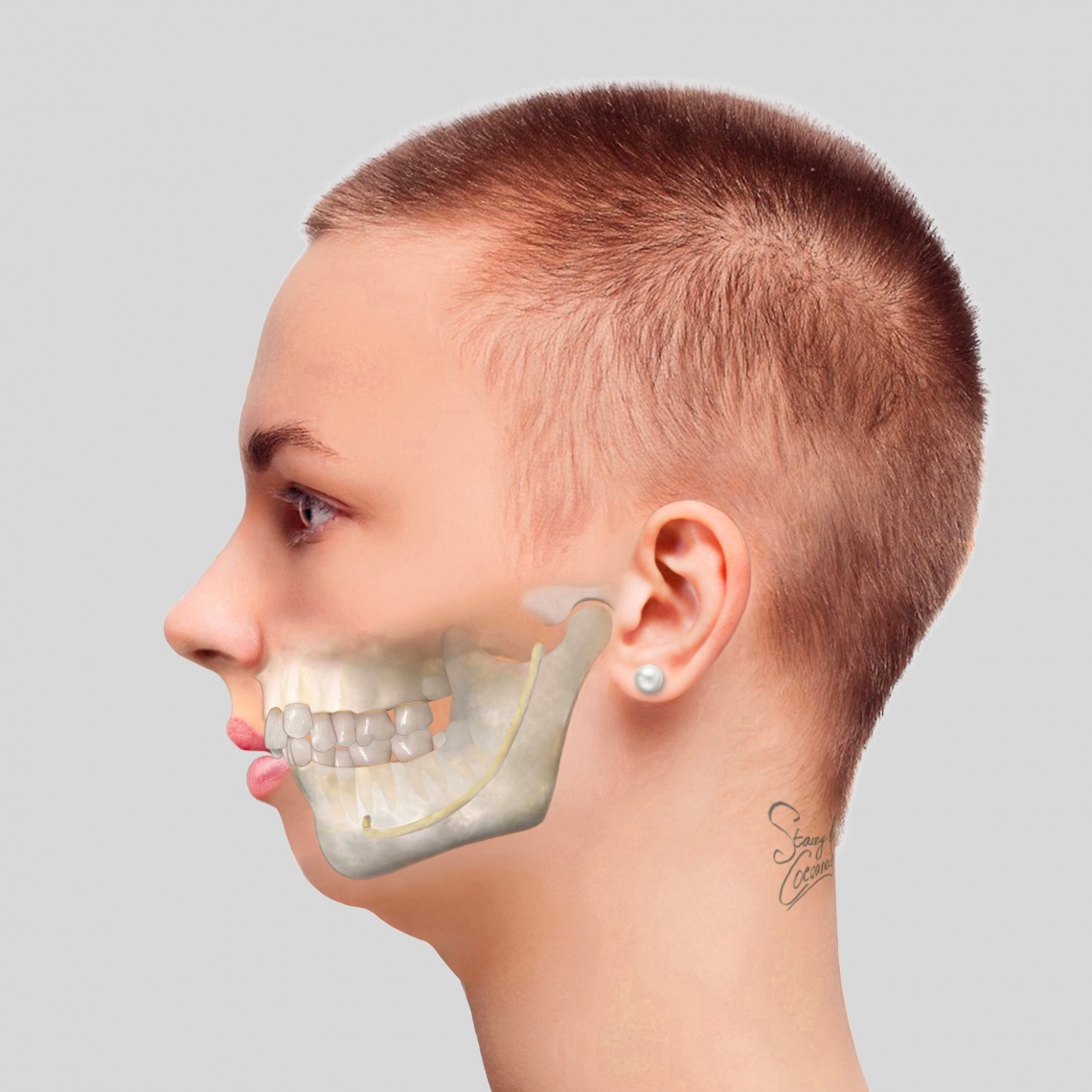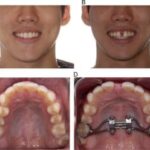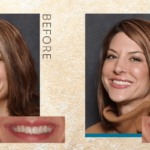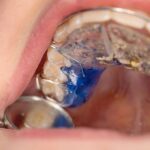During the procedure, the maxilla, which is the upper jaw bone, is carefully separated and expanded. This can be achieved through various techniques, including the use of a palatal expander device or surgically assisted rapid palatal expansion (SARPE). The specific method chosen depends on the individual’s needs and the severity of the case.
There are several benefits to undergoing upper jaw expansion surgery. Firstly, it can improve the alignment of the teeth, creating a more harmonious bite and enhancing the overall appearance of the smile. Additionally, widening the upper jaw can alleviate breathing difficulties by increasing the space for the airway, which can be particularly beneficial for individuals with obstructive sleep apnea or chronic snoring.
What Is Upper Jaw Expansion Surgery?
During the surgery, the maxilla, which is the upper jawbone, is carefully separated in the midline and gradually expanded using a device called a palatal expander. The expander is attached to the teeth and applies gentle pressure to gradually widen the jaw over a period of time.
Why Is Upper Jaw Expansion Surgery Performed?
Upper jaw expansion surgery is performed for various reasons. One of the main reasons is to correct a narrow palate, which can lead to dental crowding, misalignment of the teeth, and difficulty breathing. By widening the upper jaw, there is more space for the teeth to align properly, improving both the function and aesthetics of the smile.
Additionally, upper jaw expansion surgery can be performed to correct a crossbite, where the upper teeth bite inside the lower teeth. This misalignment can cause jaw pain, headaches, and difficulty chewing. By expanding the upper jaw, the bite can be corrected, alleviating these symptoms and improving overall oral health.
Who Is a Candidate for Upper Jaw Expansion Surgery?
Candidates for upper jaw expansion surgery are typically individuals who have a narrow palate or a crossbite that cannot be corrected with orthodontic treatment alone. The procedure is commonly performed on children and teenagers whose jaws are still growing, as it is easier to achieve the desired expansion during this time.
However, adults can also undergo upper jaw expansion surgery, although the process may take longer and may require additional procedures, such as orthognathic surgery, to achieve optimal results.
Procedure for Upper Jaw Expansion Surgery
Preparation for Surgery
Prior to the surgery, the patient will undergo a thorough examination, including dental and facial x-rays, impressions of the teeth, and a comprehensive evaluation of the jaw structure. This information will help the surgeon determine the extent of the expansion required and develop an appropriate treatment plan.
Anesthesia
Upper jaw expansion surgery is usually performed under general anesthesia to ensure the patient’s comfort and safety throughout the procedure. The anesthesia will be administered by an anesthesiologist, who will closely monitor the patient’s vital signs during the surgery.
The Surgical Procedure
The surgeon will make incisions in the gum tissue to expose the upper jawbone. Specialized instruments will then be used to gradually separate the two halves of the upper jaw, creating space for expansion. This process may involve the use of a palatal expander, which is a device that applies gentle pressure to widen the jaw. Once the desired expansion is achieved, the surgeon will secure the jawbone in its new position using plates, screws, or wires.
Recovery and Aftercare
Swelling, bruising, and mild discomfort are common after upper jaw expansion surgery and can be managed with ice packs and over-the-counter pain relievers. It is crucial to avoid strenuous activities, such as heavy lifting or intense exercise, during the initial recovery period to promote proper healing.
Over time, the jawbone will heal and stabilize in its new position, resulting in a wider upper jaw and improved dental and facial harmony. The full recovery process may take several weeks or months, and the patient’s progress will be closely monitored by the surgeon to ensure optimal results.
Upper jaw expansion surgery can provide numerous benefits, including improved breathing, enhanced dental alignment, and a more balanced facial appearance. However, it is essential to consult with an experienced oral and maxillofacial surgeon to determine if this procedure is suitable for your specific needs and to discuss any potential risks or complications.
Benefits of Upper Jaw Expansion Surgery
1. Corrects Dental Misalignment
One of the primary benefits of upper jaw expansion surgery is its ability to correct dental misalignment. By widening the upper jaw, this procedure can create more space for crowded teeth, allowing them to align properly. This can improve the overall appearance of the smile and enhance the functionality of the teeth.
2. Improves Breathing
Upper jaw expansion surgery can also improve breathing in individuals with certain breathing difficulties, such as those with a narrow upper jaw or a deviated septum. By expanding the upper jaw, the nasal passages can be widened, allowing for improved airflow and reducing the risk of breathing problems, such as snoring or sleep apnea.
3. Enhances Facial Symmetry
Another benefit of upper jaw expansion surgery is its ability to enhance facial symmetry. By correcting dental misalignment and widening the upper jaw, this procedure can improve the overall balance and proportion of the face. This can have a significant impact on the individual’s facial aesthetics and boost their self-confidence.
4. Prevents the Need for Extractions
In some cases, upper jaw expansion surgery can eliminate the need for tooth extractions. By creating more space in the upper jaw, this procedure can accommodate all the teeth properly, reducing the likelihood of overcrowding. This can help preserve natural teeth and prevent the need for extraction or orthodontic treatments in the future.
5. Enhances Chewing and Speech Function
By correcting dental misalignment and improving the overall alignment of the teeth, upper jaw expansion surgery can enhance chewing and speech function. Properly aligned teeth can improve the ability to bite, chew, and speak clearly, leading to better oral health and overall quality of life.
Recovery Process after Upper Jaw Expansion Surgery
During the initial days following the surgery, it is common to experience swelling, discomfort, and some pain in the treated area. Your doctor will prescribe pain medication to help manage any discomfort. Applying ice packs to the face can also help reduce swelling and provide relief.
Proper oral hygiene is crucial during the recovery process. You should continue to brush your teeth gently, but avoid the surgical site to prevent any damage or irritation. Rinsing your mouth with a saltwater solution can help keep the area clean and promote healing.
It is recommended to avoid strenuous physical activity and exercise during the initial weeks of recovery. This allows your body to focus on healing and reduces the risk of any complications. Your doctor will provide specific guidelines regarding when it is safe to resume normal activities.
Follow-up appointments with your doctor are essential to monitor the healing process and ensure everything is progressing as expected. During these appointments, your doctor may make adjustments to any appliances or devices used during the surgery.
By following the recommended recovery process and closely following your doctor’s instructions, you can ensure a smooth and successful recovery after upper jaw expansion surgery.
How Long Does It Take to Recover from Upper Jaw Expansion Surgery?
The recovery time can also depend on the specific techniques used during the upper jaw expansion surgery. For example, if the procedure involved the use of a palatal expander, the patient may need to gradually adjust the device over a period of time to achieve the desired expansion. This process can take several weeks or months, depending on the individual case.
Potential Risks and Complications of Upper Jaw Expansion Surgery
Although upper jaw expansion surgery is generally considered safe and effective, there are potential risks and complications that patients should be aware of before undergoing the procedure.
1. Infection
2. Bleeding
Bleeding is another potential complication of upper jaw expansion surgery. While some bleeding is normal immediately after the procedure, excessive or prolonged bleeding may require medical attention. Patients should inform their surgeon if they experience heavy bleeding or if bleeding continues for an extended period of time.
3. Nerve Damage
During upper jaw expansion surgery, there is a small risk of nerve damage. This can result in numbness or tingling in the upper lip, teeth, or gums. In rare cases, it may lead to more severe complications such as difficulty speaking or swallowing. Patients should discuss the potential risks of nerve damage with their surgeon before undergoing the procedure.
4. Swelling and Bruising
5. Changes in Bite or Speech
6. Relapse
There is a risk of relapse following upper jaw expansion surgery, especially if the patient does not diligently follow their post-operative instructions. To prevent relapse, patients may be required to wear a retainer or undergo additional orthodontic treatment after the surgery.

Dr. Fidel Cann: Esteemed orthodontist with a lifelong dedication to enhancing smiles and oral health. Pioneering expertise, compassionate care.





